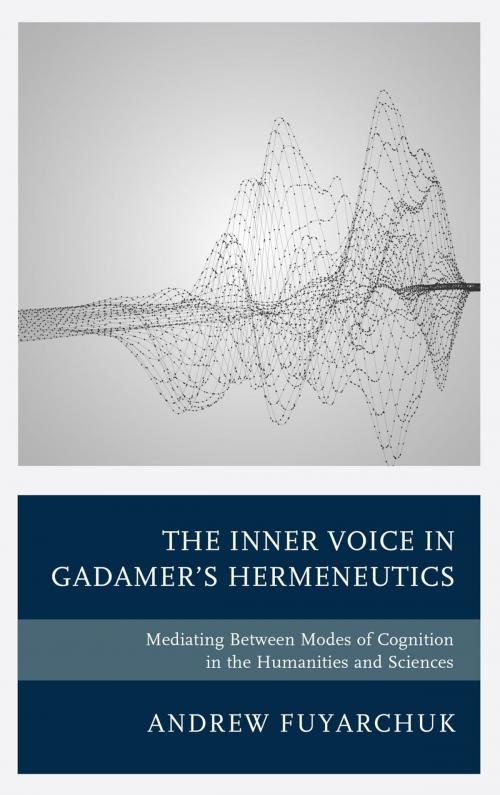The Inner Voice in Gadamer's Hermeneutics
Mediating Between Modes of Cognition in the Humanities and Sciences
Nonfiction, Religion & Spirituality, Philosophy| Author: | Andrew Fuyarchuk | ISBN: | 9781498547062 |
| Publisher: | Lexington Books | Publication: | July 15, 2017 |
| Imprint: | Lexington Books | Language: | English |
| Author: | Andrew Fuyarchuk |
| ISBN: | 9781498547062 |
| Publisher: | Lexington Books |
| Publication: | July 15, 2017 |
| Imprint: | Lexington Books |
| Language: | English |
The inner word in Gadamer’s hermeneutics refers to the meaning that exceeds anything explicitly said. This explanation has been subsumed within metaphysical and theological parameters of interpretation with little regard for the implication of Gadamer’s turn to the living language for understanding the inner word. Through examining his phenomenology of the inner word, The Inner Voice in Gadamer’s Hermeneutics reveals its musical (rhythmic and tonal) dimensions and how they function to harmonize disparate orientations in the middle voice, above all for Gadamer, those that underlie modes of cognition in both the humanities and the sciences—a visual and auditory ethos. However, understood as constituting the music of language discernible in the middle voice, the inner word is also suppressed or forgotten by the technological extension of sight—that is, print—and thus requires a turn of the inner ear or auditory disposition. Andrew Fuyarchuk assesses theories of language in evolutionary and cognitive science in light of Gadamer’s insights into the nature of thought, and he employs them to account for a dimension of language that is inscribed in the lingual minds of our species. When recalled by the inner ear, this dimension enables us to think such opposites together as we find in the humanities and sciences together. This thinking together is expressed in a double account of an object of inquiry, such as the one Fuyarchuk puts forward about the inner word in Gadamer’s philosophical hermeneutics.
The inner word in Gadamer’s hermeneutics refers to the meaning that exceeds anything explicitly said. This explanation has been subsumed within metaphysical and theological parameters of interpretation with little regard for the implication of Gadamer’s turn to the living language for understanding the inner word. Through examining his phenomenology of the inner word, The Inner Voice in Gadamer’s Hermeneutics reveals its musical (rhythmic and tonal) dimensions and how they function to harmonize disparate orientations in the middle voice, above all for Gadamer, those that underlie modes of cognition in both the humanities and the sciences—a visual and auditory ethos. However, understood as constituting the music of language discernible in the middle voice, the inner word is also suppressed or forgotten by the technological extension of sight—that is, print—and thus requires a turn of the inner ear or auditory disposition. Andrew Fuyarchuk assesses theories of language in evolutionary and cognitive science in light of Gadamer’s insights into the nature of thought, and he employs them to account for a dimension of language that is inscribed in the lingual minds of our species. When recalled by the inner ear, this dimension enables us to think such opposites together as we find in the humanities and sciences together. This thinking together is expressed in a double account of an object of inquiry, such as the one Fuyarchuk puts forward about the inner word in Gadamer’s philosophical hermeneutics.















